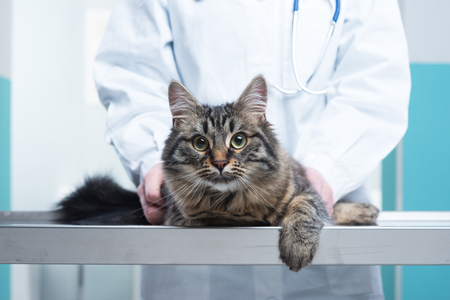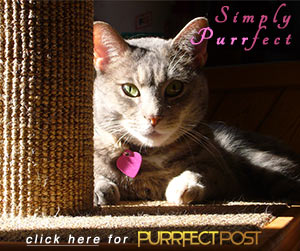Steatitis: Yellow Fat Disease in Cats

Steatitis, also called pansteatitis or yellow fat disease, is inflammation of a cat's fatty tissue.
Causes of Steatitis in Cats
Steatitis is usually caused by vitamin E deficiency or a diet high in unsaturated fatty acids, which depletes the body's vitamin E.
It can also be the result of trauma to the abdomen, pancreatitis, or pancreatic cancer. Some cases appear to be secondary to infections or triggered by autoimmune disorders. Other times, the disease is idiopathic, which means that a cause can't be identified.
Diets high in unsaturated fatty acids that are fed to cats without a corresponding increase in vitamin E can result in a deficiency. Because vitamin E is an antioxidant that helps prevent the abnormal breakdown of fat, not having enough of it can lead to inflammation and death of fat cells.
Steatitis in cats can be triggered by diets high in oily fish.
Signs and Diagnosis of Feline Steatitis
Cats that are affected by yellow fat disease may show some or all of the following signs:
- Depression
- Decreased or absent appetite
- Painful abdomen
- Vomiting
- Fever
A veterinarian may be able to feel lumps in the fat of the cat's abdomen or you may see lumps under your cat's skin. Bloodwork results may show vague changes such as an increase in white blood cells and a decrease in red blood cells. Kidney function values may be elevated, and calcium may be low.
The only way to definitively diagnose steatitis in cats is by histopathology, or the examination of fat cells under the microscope.
Treatment of Yellow Fat Disease in Cats
Treatment of this illness includes supportive care if necessary with intravenous fluids, pain medications, and sometimes a feeding tube.
Appetite stimulant medications may be given, and vitamin E supplementation is used. If diet imbalance is suspected as the cause of the steatitis, the diet should be corrected.
Sometimes, corticosteroids such as prednisolone are used to decrease inflammation.
Conclusions on Steatitis in Cats
Cats should not be fed a diet exclusively of oily fish or tuna prepared for humans. Along with being high in unsaturated fatty acids and potentially leading to life-threatening steatitis, there are other concerns such as contaminants in the fish and the link between fish-based diets and hyperthyroidism in cats. You can learn more here:
"Ethoxyquin, Mercury, and PCBs: Is Feeding Fish Safe for Cats?"
"Fishy Food and Feline Hyperthyroidism"
You May Also Like These Articles:
Are You Shortening Your Cat's Life? - Slideshow
What Should You Do If Your Cat's Food Is Recalled?
Best Litter for Kittens: Is Clumping Litter Safe?
Should Cats Get Tap or Filtered Water?
Ethoxyquin, Mercury, and PCBs: Is Feeding Fish Safe for Cats?
Notice: Ask-a-Vet is an affiliated service for those who wish to speak with a veterinary professional about their pet's specific condition. Initially, a bot will ask questions to determine the general nature of your concern. Then, you will be transferred to a human. There is a charge for the service if you choose to connect to a veterinarian. Ask-a-Vet is not manned by the staff or owners of CatHealth.com, and the advice given should not delay or replace a visit to your veterinarian.





